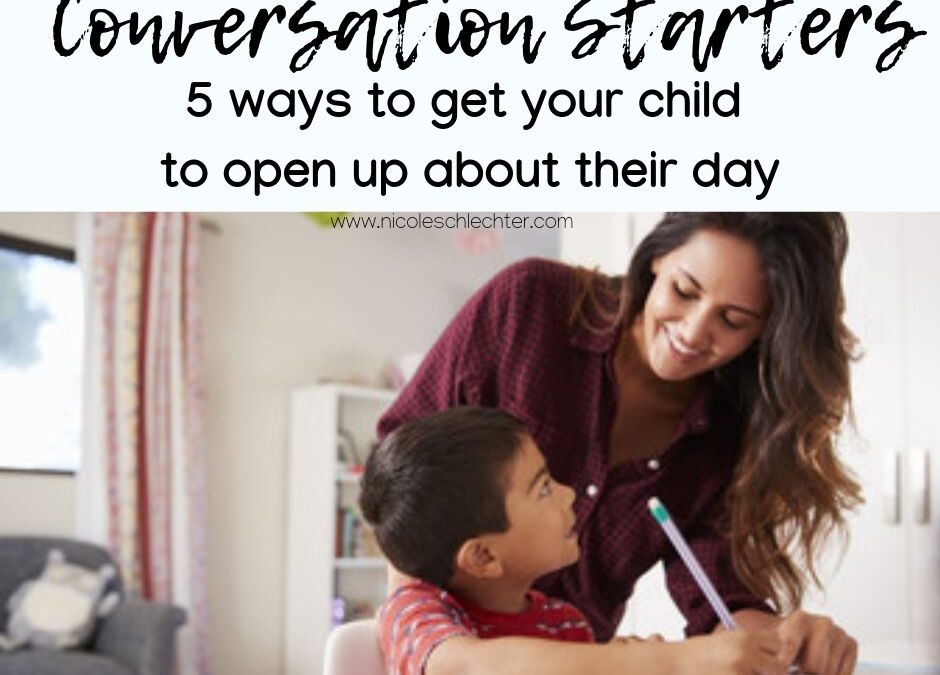First day of school. You send your baby off on the big school bus for the first time ever. They barely let you take a picture before running out the door! The bus pulls away and you are left there…. waiting… wondering… anxious for your kiddo to come home and tell you all about their day! Reality? Child walks in the door, throws their back pack down and…. asks for a snack. “How was your day?” you eagerly ask. “Fine.” they respond. “What did you do?” you ask again. “I don’t know.” they say as they sit down for snack.
Am I right? This is so typical for all kids, but when you add into play a child who has difficulty expressing their emotions, this picture I painted may include tears, yelling and a big old giant meltdown. School is hard for our kids! They struggle to hold it together all day at school, and then when they walk into the safe place of home, they fall apart. If you need help dealing with after school meltdowns… go here. Today we are going to talk about ways to help your child discuss their day, after they have transitioned from school to home.
First it needs to be said that as excited as you are to hear about that first day, you should NOT be chasing them down with questions immediately when walking in the door. Again, our kids are working so hard to hold it together at school, even if they aren’t melting down, they probably need a calm down minute. In our house we have a rule that homework comes first before we play after school. However, when Mason walks in the door and says, mom I need a minute, we set the timer and give him 5 or 10 mins to “veg out” or whatever he needs, before I place an demands on him. It’s helpful to come up with a “toolbox” of calm down strategies and allow your child to choose what they need in the moment. At school, they don’t have a ton of control over their day, so giving them the option to choose their strategy often allows them to feel more in control over their environment. Some helpful strategies may include:
– playing playdoh
– listening to music
– kicking or bouncing a ball
– swinging in a sensory swing
– ripping up paper
– yoga
– going to a quiet area
– chewing gum
Once you feel like your child is in a good place, feel free to dig a little into their day! Asking questions like “how was your day” or “what did you do?” may seem obvious choices, but will probably provide with one word answers. For kids who need a little help giving details about their day, asking specific questions will help them be able to relay facts about what actually happened in their day. Here are 5 examples:
1. What was the book about that your teacher read?
2. What did you play at recess? Who was there?
3. What was something funny that made you laugh at lunch?
4. What did you do today that was hard for you?
5. What was your favorite thing you learned today? Why did you like it?
Asking questions like these are opening the conversation up for more than one word answers. These types of WH questions not only allow you to learn more about their day, but also are helpful in teaching your child the life skill of holding a conversation.
BONUS GOAL: Teach your child to ask you WH questions about YOUR day. Holding a conversation is more than just answering questions about their day, it’s engaging the other person in conversation also!
Are you following on Facebook? You should be! Head on over to www.facebook.com/nicoleschlechteradvocacy to grab your FREE IEP tips!

